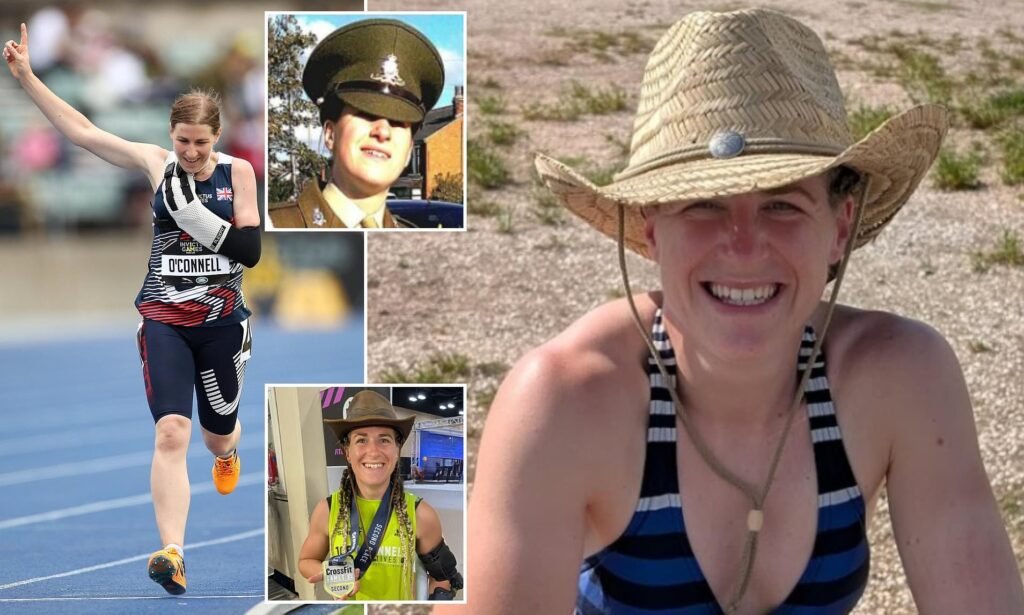The Controversial Case of a Para-Athlete and Her £1.74 Million Compensation Claim
A former soldier who transitioned into a gold medal-winning para-athlete after a military accident is now facing serious allegations of dishonesty regarding her disability. Debbie O’Connell, 37, claims she sustained a severe injury in 2015 when she fell from an army horse, resulting in chronic pain and limited use of her left arm and shoulder. However, the Ministry of Defence (MoD) has accused her of exaggerating her condition to support a £1.74 million compensation claim against the government.
O’Connell served as a gunner in the Royal Horse Artillery and was part of the King’s Troop, a ceremonial unit responsible for driving horses pulling historic cannons during high-profile events. She was discharged from the forces two years after her injury but went on to build a successful career in para athletics. She won gold medals at the Invictus Games in 2018, competed at European and world levels in sprinting, and became a top CrossFit competitor.
Her journey into para sports began after her accident, which occurred during a training exercise involving three riders. O’Connell’s horse, Electra Jazz, bucked and threw her to the ground, causing a severe fracture to her left collarbone. She underwent surgery with a plate and screws, but she claims the injury led to ongoing pain and limited mobility in her left arm and shoulder.
Despite these challenges, O’Connell pursued a career in para athletics, competing in the T46 category, which is designed for athletes with limb impairments comparable to those with a unilateral above-the-elbow amputation. However, the MoD disputes her classification, arguing that she does not meet the criteria for this category. They claim that surveillance footage shows her using her left arm and shoulder in ways inconsistent with her reported limitations.
The MoD presented evidence from covert video recordings taken in 2020 and 2022, showing O’Connell walking a dog, lifting heavy objects, and leading a difficult horse. These activities contradict her previous statements to medical experts, where she described near-total restriction of movement in her left shoulder and arm. In one instance, she told a care expert she lacked the strength to hold a dog’s leash, yet the footage showed her walking a dog without difficulty.
O’Connell denies any dishonesty, insisting that her claim is genuine and that her participation in para athletics is legitimate. She argues that her condition aligns with the T46 classification and that she has been honest about her injuries. She also emphasized that as a soldier, she was trained to push through pain, and her athletic pursuits are a way to reclaim her life after the accident.
Her legal team defended her by highlighting the extensive medical treatment she has undergone, including surgeries and nerve blocks, which they argue would not be necessary if her claim were fabricated. They also pointed out that her condition has been diagnosed as neuropathic pain, which can cause ongoing discomfort and movement restrictions.
The MoD further contests O’Connell’s assertion that the horse involved in her accident had a history of bucking. They argue that Jazz, the horse she was riding, had no known tendency to act violently and that the incident was due to a loss of balance rather than an inherent danger. Additionally, they dispute her claim about being issued size 11 boots instead of a smaller size, stating that the footwear was appropriate and safe.
The trial continues as both sides present their arguments, with the court weighing the evidence to determine whether O’Connell’s claims are truthful or exaggerated. This case highlights the complexities of disability claims and the challenges faced by individuals navigating the intersection of military service, personal injury, and competitive athletics.

